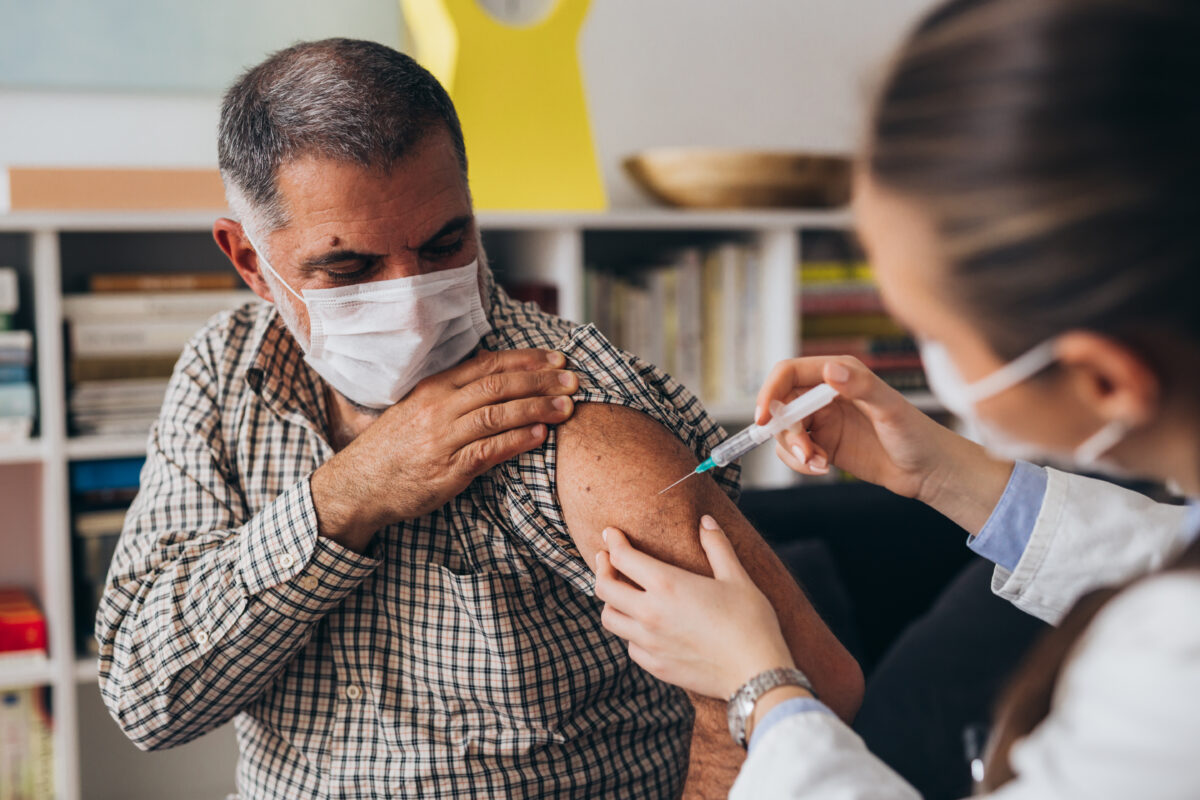WHAT ARE ALLERGY SHOTS?
Allergy shots, also known as immunotherapy, are regular injections over three to five years used to stop or reduce allergy attacks. These shots help your body get used to allergens, the things that trigger an allergic reaction. Over time, these shots desensitize your immune system, and your body builds up a tolerance to the allergens.
Allergy shots decrease sensitivity to allergens and often lead to relief of allergy symptoms even after treatment is stopped making it beneficial for many people. You may want to consider shots if you have symptoms more than three months a year and medicines don’t give you enough relief. Our specialists at Pulmonary Associates of Richmond Allergy Center will work with you to diagnose and treat your allergies, including determining if immunotherapy is right for you.
IS IMMUNOTHERAPY RIGHT FOR ME?
Both children and adults can receive allergy shots, although it is not typically recommended for children under age five. For everyone, other medical conditions must be considered.
Shots may be a promising treatment choice for you if:

CONDITIONS FOR WHICH IMMUNOTHERAPY IS EFFECTIVE
Allergy shots can be used to control symptoms triggered by:
Immunotherapy is not available for food allergies or chronic hives.
HOW DO ALLERGY SHOTS WORK?
Immunotherapy works just like a vaccine. Your body responds to the allergens injected, and as you are given a gradual increase in dosage, you develop an immunity or tolerance to the allergen.
There are two phases:
HOW EFFECTIVE ARE ALLERGY SHOTS?
Immunotherapy has been shown to decrease symptoms of many allergies and prevent the development of new allergies. In children, they have been shown to prevent the progression of hay fever to asthma. The effectiveness of the shots appears to be related to the length of the treatment program and the dose of the allergen.
Success also depends on how many things you’re allergic to and how severe your symptoms are. Some people experience lasting relief from allergy symptoms, while others relapse after discontinuing the shots. If you don’t see improvement after a year of maintenance therapy, your Pulmonary Associates of Richmond Allergy Center allergist will consider other treatment options.
Failure to respond to immunotherapy can be due to several things:
ARE THERE RISKS ASSOCIATED WITH ALLERGY SHOTS?
Everyone reacts differently to immunotherapy. A typical reaction is redness and swelling at the injection site that can happen immediately or several hours after the injection. In some instances, symptoms can include increased allergy symptoms such as sneezing, nasal congestion or hives. Other people feel achy or tired.
Severe reactions to the shots are rare. When they do occur, they require immediate medical attention. Symptoms of an anaphylactic reaction can include swelling in the throat, wheezing or tightness in the chest, nausea and dizziness. Most serious reactions develop within 30 minutes of the allergy injections. This is why your doctor makes you wait for at least 30 minutes after you receive the shot.


